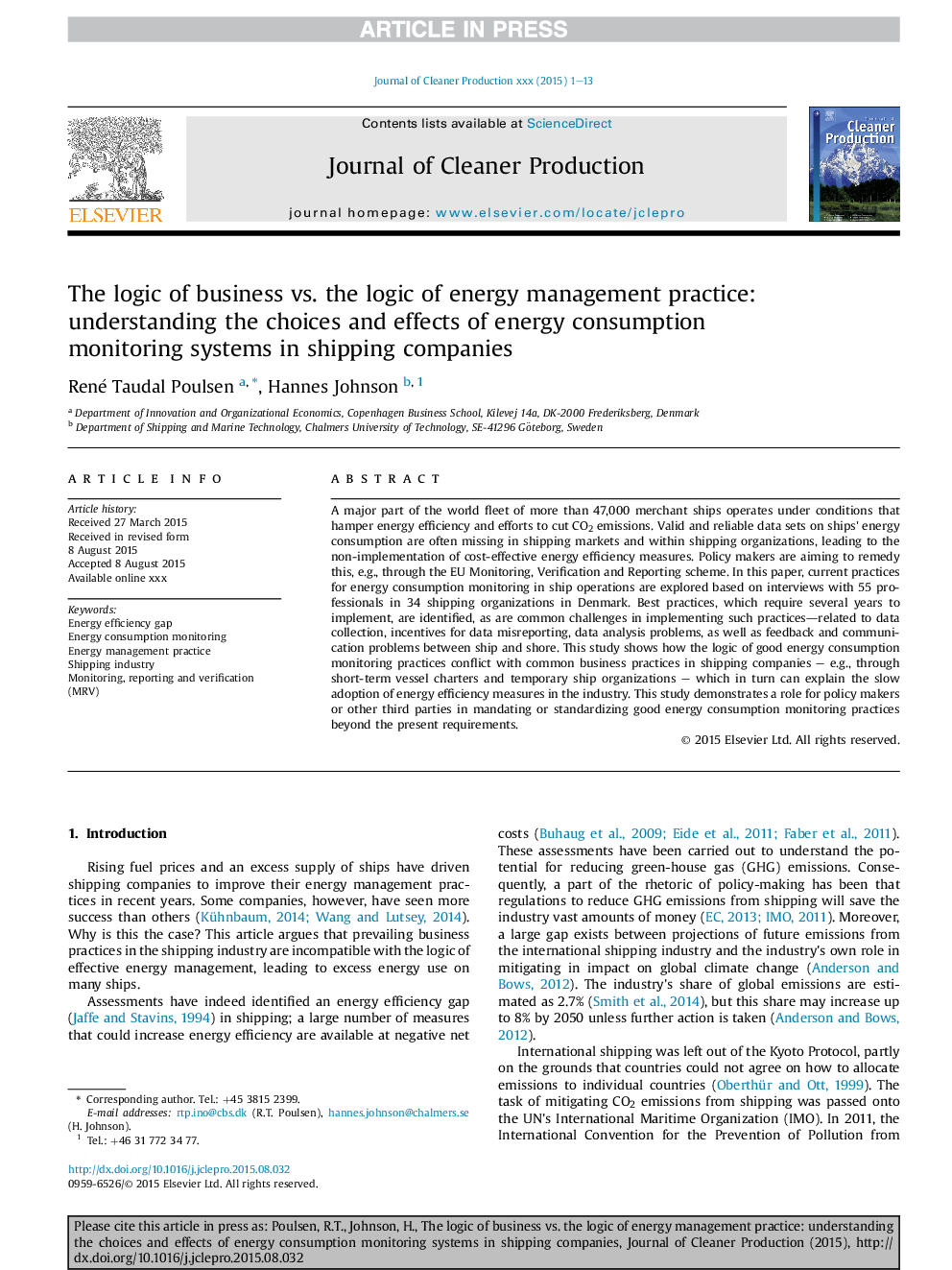| Article ID | Journal | Published Year | Pages | File Type |
|---|---|---|---|---|
| 10687924 | Journal of Cleaner Production | 2016 | 13 Pages |
Abstract
A major part of the world fleet of more than 47,000 merchant ships operates under conditions that hamper energy efficiency and efforts to cut CO2 emissions. Valid and reliable data sets on ships' energy consumption are often missing in shipping markets and within shipping organizations, leading to the non-implementation of cost-effective energy efficiency measures. Policy makers are aiming to remedy this, e.g., through the EU Monitoring, Verification and Reporting scheme. In this paper, current practices for energy consumption monitoring in ship operations are explored based on interviews with 55 professionals in 34 shipping organizations in Denmark. Best practices, which require several years to implement, are identified, as are common challenges in implementing such practices-related to data collection, incentives for data misreporting, data analysis problems, as well as feedback and communication problems between ship and shore. This study shows how the logic of good energy consumption monitoring practices conflict with common business practices in shipping companies - e.g., through short-term vessel charters and temporary ship organizations - which in turn can explain the slow adoption of energy efficiency measures in the industry. This study demonstrates a role for policy makers or other third parties in mandating or standardizing good energy consumption monitoring practices beyond the present requirements.
Related Topics
Physical Sciences and Engineering
Energy
Renewable Energy, Sustainability and the Environment
Authors
René Taudal Poulsen, Hannes Johnson,
